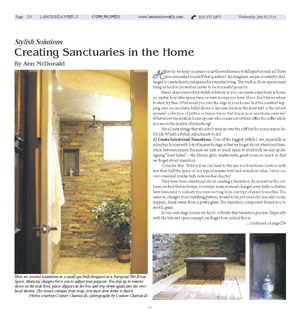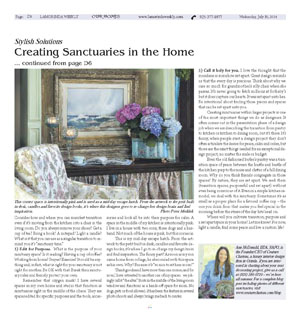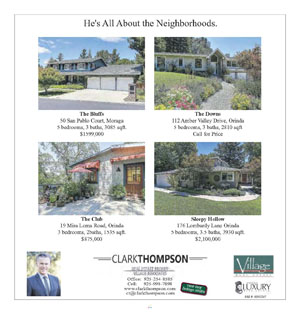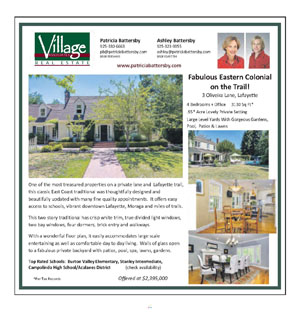|
|
Published July 30th, 2014
|
Stylish Solutions
|
| Creating Sanctuaries in the Home |
| By Ann McDonald |
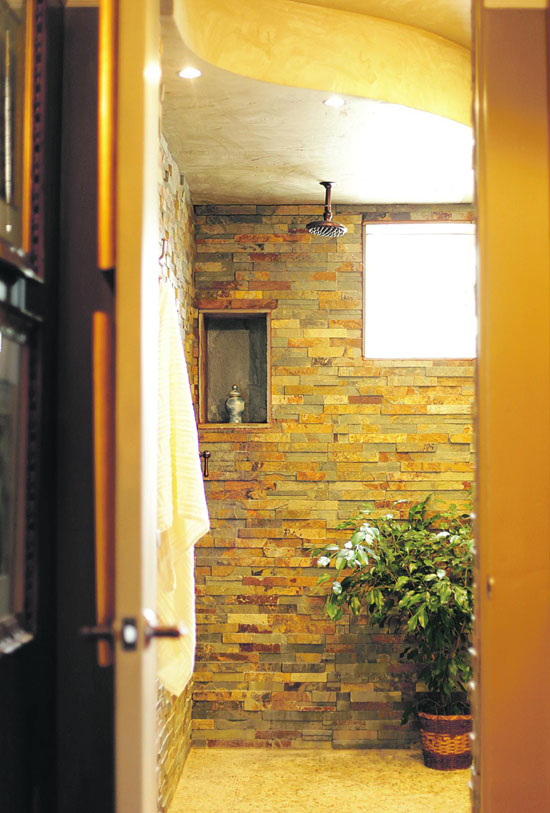 |
| Here we created transitions in a small spa bath designed as a European Wet Room Space. Material changes force you to adjust your purpose. You step up to remove shoes on the teak floor, place slippers in the box and step down again into the overhead shower. The vessel contains your soap; you must slow down to find it. Photos courtesy Couture Chateau llc, photography by Couture Chateau llc |
How do we keep our peace on as the world seems to fall apart around us? Have you ever asked yourself that question? As designers, we are constantly challenged to create functional spaces for everyday living. The truth is, those spaces must bring us back to proverbial center to be successful projects.
 Here I share some of my stylish solutions so you can create a sanctuary at home no matter how little space, time or even money you have. If you don't know where to start, try this: What sends you over the edge in your home? Is it the constant tripping over soccer cleats, ballet shoes or lacrosse sticks in the front hall or the retired spouses' collection of putters or tennis visors that drains your emotional reserves? What about the work-at-home spouse who comes out of their office for coffee while you are in the middle of something?
Here I share some of my stylish solutions so you can create a sanctuary at home no matter how little space, time or even money you have. If you don't know where to start, try this: What sends you over the edge in your home? Is it the constant tripping over soccer cleats, ballet shoes or lacrosse sticks in the front hall or the retired spouses' collection of putters or tennis visors that drains your emotional reserves? What about the work-at-home spouse who comes out of their office for coffee while you are in the middle of something?
 We all have things that shouldn't send us over the cliff but for some reason do. It's life. What's a stylish suburbanite to do?
We all have things that shouldn't send us over the cliff but for some reason do. It's life. What's a stylish suburbanite to do?
 1) Create Intentional Transitions. One of the biggest pitfalls I see, especially in suburban homes with lots of square footage is that we forget about intentional transition between spaces. Because we have so much space to work with we end up designing "must haves" - the library, gym, master suite, guest room, so much so that we forget about transition.
1) Create Intentional Transitions. One of the biggest pitfalls I see, especially in suburban homes with lots of square footage is that we forget about intentional transition between spaces. Because we have so much space to work with we end up designing "must haves" - the library, gym, master suite, guest room, so much so that we forget about transition.
 Consider this: Why is it we can head to the spa in a downtown location with less than half the space of our typical master bath and somehow relax, but in our own oversized master bath suite we feel chaotic?
Consider this: Why is it we can head to the spa in a downtown location with less than half the space of our typical master bath and somehow relax, but in our own oversized master bath suite we feel chaotic?
 They have been intentional about creating a transition. As ancient as the cultures, we find that archways, doorways, mats, material changes, even bells or shelves have been used to indicate you were moving from one type of space to another. You came in, changed your breathing pattern, slowed a bit, put on a robe in a calm room, slippers, drank water from a pretty glass. The transition component forced you to switch gears.
They have been intentional about creating a transition. As ancient as the cultures, we find that archways, doorways, mats, material changes, even bells or shelves have been used to indicate you were moving from one type of space to another. You came in, changed your breathing pattern, slowed a bit, put on a robe in a calm room, slippers, drank water from a pretty glass. The transition component forced you to switch gears.
 In our own large homes we fail to cultivate that transition process. Especially with the beloved open concept, we forget how critical this is. Consider how and where you can manifest transition even if it's moving from the kitchen into a chair in the living room. Do you always remove your shoes? Get a cup of tea? Bring a book? A notepad? Light a candle? What is it that you can use as a singular transition to remind you it's "sanctuary time."
In our own large homes we fail to cultivate that transition process. Especially with the beloved open concept, we forget how critical this is. Consider how and where you can manifest transition even if it's moving from the kitchen into a chair in the living room. Do you always remove your shoes? Get a cup of tea? Bring a book? A notepad? Light a candle? What is it that you can use as a singular transition to remind you it's "sanctuary time."
 2) Edit for Purpose. What is the purpose of your sanctuary space? Is it reading? Having a cup of coffee? Working from home? Prayer? Exercise? It could be anything and, in fact, what is right for your sanctuary is not right for another. Be OK with that. Break their sanctuary rules and fiercely protect your own.
2) Edit for Purpose. What is the purpose of your sanctuary space? Is it reading? Having a cup of coffee? Working from home? Prayer? Exercise? It could be anything and, in fact, what is right for your sanctuary is not right for another. Be OK with that. Break their sanctuary rules and fiercely protect your own.
 Remember that oxygen mask! I have several spaces in my own home and studio that function as sanctuaries right in the middle of the chaos. They are spaces edited for specific purposes and the tools, accessories and look all tie into their purpose for calm. A space in the middle of my kitchen is intentionally pink. I live in a house with two sons, three dogs and a husband. Not much of the house is pink, but this corner is.
Remember that oxygen mask! I have several spaces in my own home and studio that function as sanctuaries right in the middle of the chaos. They are spaces edited for specific purposes and the tools, accessories and look all tie into their purpose for calm. A space in the middle of my kitchen is intentionally pink. I live in a house with two sons, three dogs and a husband. Not much of the house is pink, but this corner is.
 This is my mid-day escape hatch. From the artwork to the petit built in desk, candles and favorite design books, it's where I go to re-charge my design brain and find inspiration. The funny part? As soon as my son came home from college, he absconded with this space as his own. Why? Because it's "so nice to sit here mom!"
This is my mid-day escape hatch. From the artwork to the petit built in desk, candles and favorite design books, it's where I go to re-charge my design brain and find inspiration. The funny part? As soon as my son came home from college, he absconded with this space as his own. Why? Because it's "so nice to sit here mom!"
 Thank goodness I have more than one corner, and for now, I have retreated to another one of my spaces: we jokingly call it "the altar." It sits in the middle of the living room window and functions as a hands-off space for mom. No dogs, pets or food allowed. It has been the feature in several photo shoots and always brings me back to center.
Thank goodness I have more than one corner, and for now, I have retreated to another one of my spaces: we jokingly call it "the altar." It sits in the middle of the living room window and functions as a hands-off space for mom. No dogs, pets or food allowed. It has been the feature in several photo shoots and always brings me back to center.
 3) Call it holy for you. I love the thought that the mundane is somehow set apart. Great design reminds us that the every day is precious. Think about why we care so much for grandmother's silly chair when she passes. It's never going to fetch millions at Sotheby's but it does capture our hearts. It was set apart unto her. Be intentional about finding those pieces and spaces that can be set apart unto you.
3) Call it holy for you. I love the thought that the mundane is somehow set apart. Great design reminds us that the every day is precious. Think about why we care so much for grandmother's silly chair when she passes. It's never going to fetch millions at Sotheby's but it does capture our hearts. It was set apart unto her. Be intentional about finding those pieces and spaces that can be set apart unto you.
 Creating sanctuaries within larger projects is one of the most important things we do as designers. It often comes out in the presentation phase of a design job when we are describing the transition from pantry to kitchen or kitchen to dining room, but it's there. It's funny, when people start a design project they don't often articulate the desire for peace, calm and order, but those are the exact things needed for an exceptional design project, no matter the scale or budget.
Creating sanctuaries within larger projects is one of the most important things we do as designers. It often comes out in the presentation phase of a design job when we are describing the transition from pantry to kitchen or kitchen to dining room, but it's there. It's funny, when people start a design project they don't often articulate the desire for peace, calm and order, but those are the exact things needed for an exceptional design project, no matter the scale or budget.
 Even the old fashioned butler's pantry was a transition space of peace between the hustle and bustle of the kitchen prep to the noise and clatter of a full dining room. Why do you think friends congregate in those spaces? By nature, they are set apart. We seek them (transition spaces, purposeful and set apart) without even being conscious of it. Even in a simple kitchen remodel, we deal with the sanctuary. Sometimes it's as small as a proper place for a favored coffee cup - the one you drink from that makes you feel special in the morning before the stress of the day hits head on.
Even the old fashioned butler's pantry was a transition space of peace between the hustle and bustle of the kitchen prep to the noise and clatter of a full dining room. Why do you think friends congregate in those spaces? By nature, they are set apart. We seek them (transition spaces, purposeful and set apart) without even being conscious of it. Even in a simple kitchen remodel, we deal with the sanctuary. Sometimes it's as small as a proper place for a favored coffee cup - the one you drink from that makes you feel special in the morning before the stress of the day hits head on.
 Where will you cultivate transition, purpose and a set apart space in your home? Let me know! For now, light a candle, find some peace and live a custom life!
Where will you cultivate transition, purpose and a set apart space in your home? Let me know! For now, light a candle, find some peace and live a custom life!

|
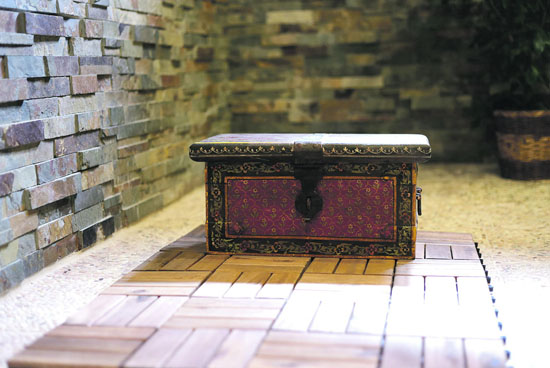 |
| |
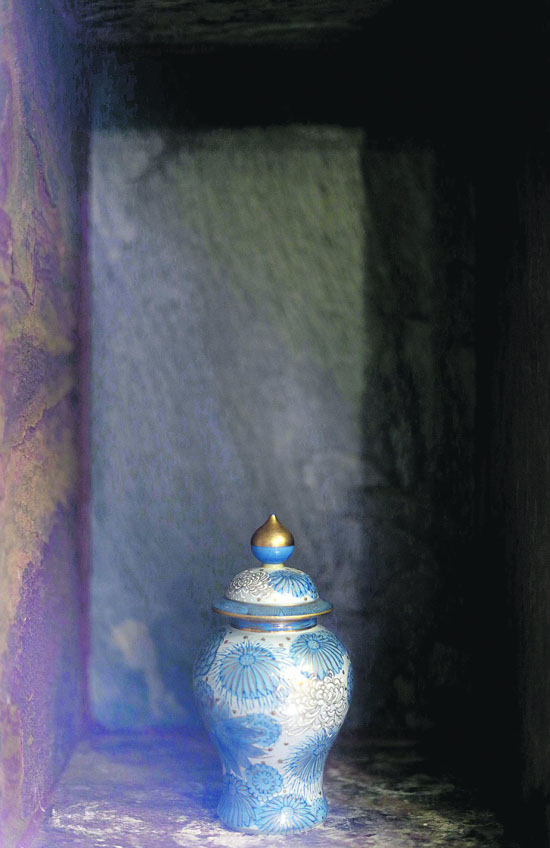 |
| |
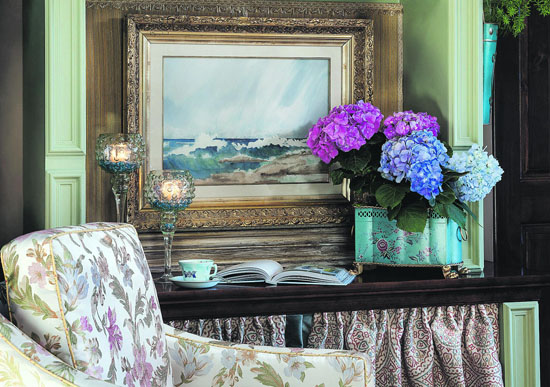 |
| This corner space is intentionally pink and is used as a mid-day escape hatch. From the artwork to the petit built in desk, candles and favorite design books, it's where this designer goes to re-charge her design brain and find inspiration. Photo Peter Medilek |
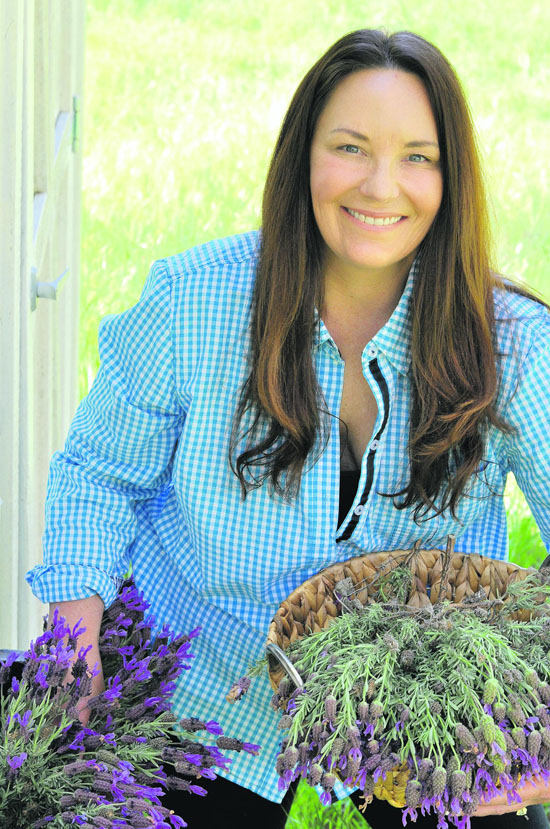 |
| Ann McDonald, IIDA, NAPO, is the Founder/CEO of Couture Chateau, a luxury interior design firm in Orinda. If you are interested in chatting about your next decorating project, give us a call at (925) 386-0720 - we're here all summer. For a complete blog post including photos of different sanctuaries, visit www.couturechateau.com/blog. |
| |
|
|
|
|







